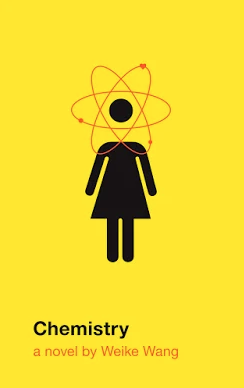Shiralkar: ‘Chemistry,’ a book review
August 29, 2020
I ask everyone I meet, “Do you have a nice book recommendation?” Somehow this habit has retained its nonannoying attribute and allows me to step away from my comfort bookshelves — over-the-top action and adventure, the occasional murder mystery and a few science-fiction bestsellers. “Chemistry” by Weike Wang is not a book recommended to me by anyone I know; I simply looked up the best novels to finish in an afternoon, and there it was, number four or five on the list of an obscure blog, the name of which I have since forgotten. (Minor spoilers ahead.)
The book, in and of itself, reads nothing like a novel. There are no quotes, no dialogue, no structure; the narrative can seem incoherent and sometimes the reader can be agitated by the frequent esoteric chemistry jargon. One of the popular reviews of “Chemistry” is as follows: “These sentences. They are choppy. The reader. She does not like them. The plot. It is thin.” And the sentences are indeed choppy; the plot undeniably resembles a wafer in its structure. But it is a compelling piece of literature written from the perspective of a graduate student with toxic coping mechanisms — that is why you should read it.
And it is why I gave the book four stars. Take, for example, the opening lines: “The boy asks the girl a question. It is a question of marriage. Ask me again tomorrow, she says, and he says, That’s not how this works.” The staccato sentences read almost like a stand-up comedy routine. The narrator is an unnamed Chinese immigrant working toward her doctorate in chemistry at Boston University. With a wide array of arcane organic chemistry tidbits interspersed with personal transformations and flashbacks of growing up in a taut household, the author stolidly portrays the narrator’s ambivalence regarding her career, relationships, the immense pressure to find her path as an adult.
The narrator’s indecision in moving forward with her nice, well-settled boyfriend Eric is raw and unforgiving. Instead of figuring out how to be a grown-up, the narrator learns to live with her uncertainty. After a series of incidents, she freaks out in her lab and smashes lab equipment, as her labmates and other graduate students watch in shock. Subsequently, she goes on a medical sabbatical and turns to alcohol for support.
In addition to an imprecise apathy — and as an international student in a graduate program (one that is not chemistry) — I found other relatable aspects in this book that are mentioned above. An impassive and clinical approach to my career is something I must undertake not because it works but because it is necessary — and the only way I know. I am expected to make certain decisions not because I want to, but because they’re simply the right decisions. I can’t control a lot of things, especially some of my choices.
“Chemistry” is about this woman’s struggle with her own existence, a visceral study into the psyche of someone whose go-to reaction to stimuli is hesitation, who is distinctly aware of her own breakdown but keeps pushing on.
In a nutshell, it is a devastating novel about the working-class mindset of today’s youth, one which permits no thought for when is a good time to stop and take a break. It will have a deeper impact on readers more in touch with their emotional side than me but it makes for a compelling summer read (get it here) regardless.
Wash your hands and stay hydrated.







